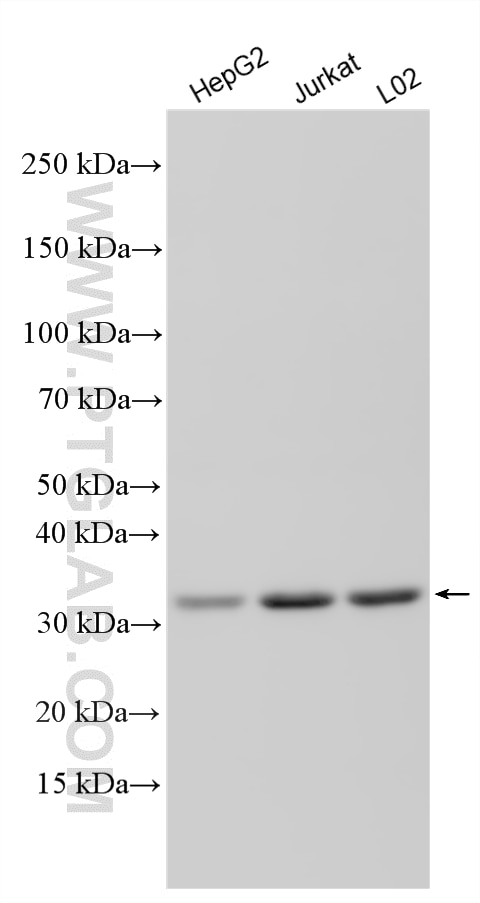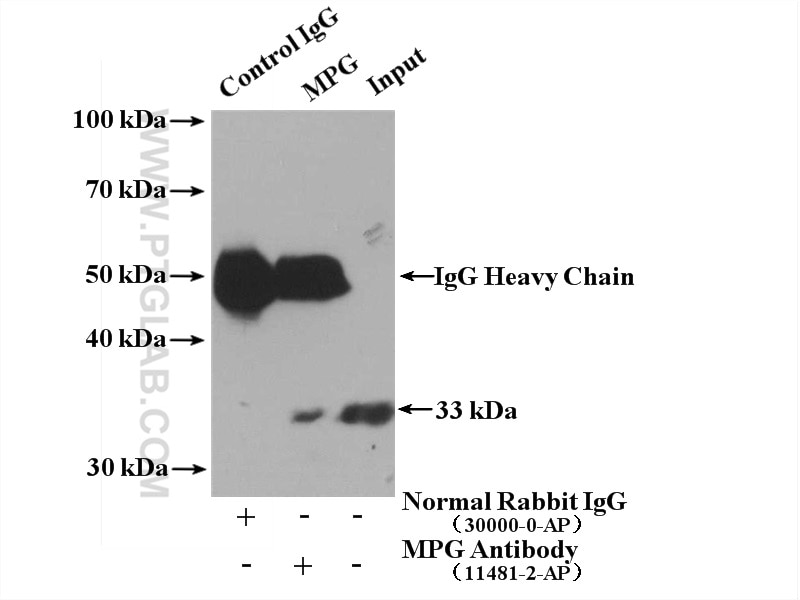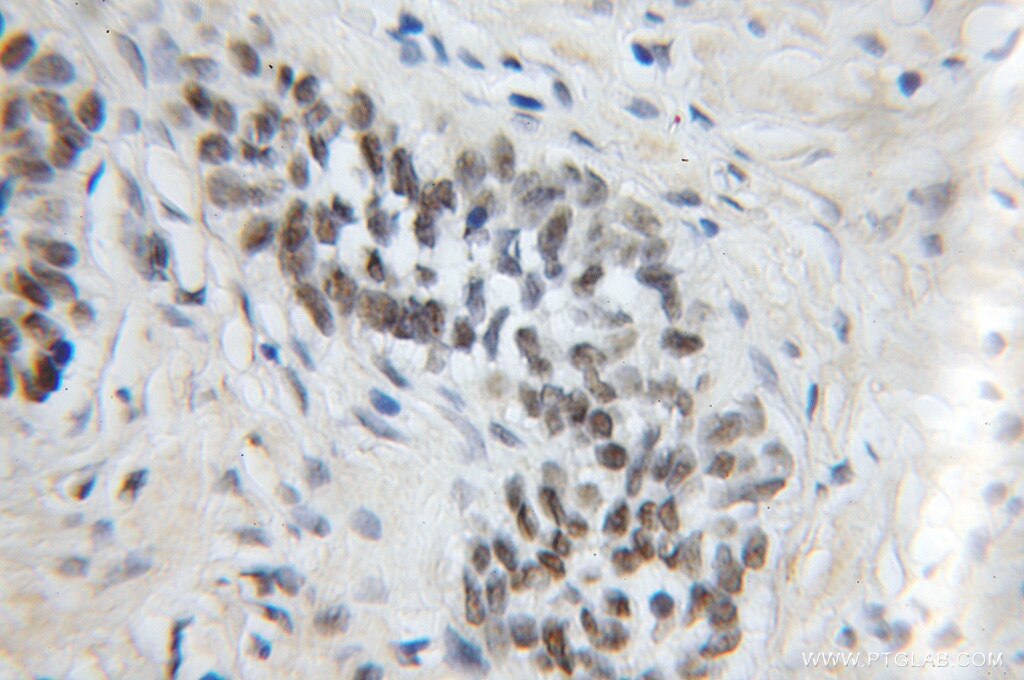Tested Applications
| Positive WB detected in | HepG2 cells, Jurkat cells, L02 cells |
| Positive IP detected in | HepG2 cells |
| Positive IHC detected in | human prostate cancer tissue Note: suggested antigen retrieval with TE buffer pH 9.0; (*) Alternatively, antigen retrieval may be performed with citrate buffer pH 6.0 |
Recommended dilution
| Application | Dilution |
|---|---|
| Western Blot (WB) | WB : 1:500-1:1000 |
| Immunoprecipitation (IP) | IP : 0.5-4.0 ug for 1.0-3.0 mg of total protein lysate |
| Immunohistochemistry (IHC) | IHC : 1:20-1:200 |
| It is recommended that this reagent should be titrated in each testing system to obtain optimal results. | |
| Sample-dependent, Check data in validation data gallery. | |
Published Applications
| WB | See 3 publications below |
Product Information
11481-2-AP targets MPG in WB, IHC, IP, ELISA applications and shows reactivity with human samples.
| Tested Reactivity | human |
| Cited Reactivity | human, mouse |
| Host / Isotype | Rabbit / IgG |
| Class | Polyclonal |
| Type | Antibody |
| Immunogen |
CatNo: Ag2034 Product name: Recombinant human MPG protein Source: e coli.-derived, PGEX-4T Tag: GST Domain: 1-293 aa of BC014991 Sequence: MPARSGAQFCRRMGQKKQRPARAGQPHSSSDAAQAPAEQPHSSSDAAQAPCPRERCLGPPTTPGPYRSIYFSSPKGHLTRLGLEFFDQPAVPLARAFLGQVLVRRLPNGTELRGRIVETEAYLGPEDEAAHSRGGRQTPRNRGMFMKPGTLYVYIIYGMYFCMNISSQGDGACVLLRALEPLEGLETMRQLRSTLRKGTASRVLKDRELCSGPSKLCQALAINKSFDQRDLAQDEAVWLERGPLEPSEPAVVAAARVGVGHAGEWARKPLRFYVRGSPWVSVVDRVAEQDTQA Predict reactive species |
| Full Name | N-methylpurine-DNA glycosylase |
| Calculated Molecular Weight | 293 aa, 32 kDa |
| Observed Molecular Weight | 33 kDa |
| GenBank Accession Number | BC014991 |
| Gene Symbol | MPG |
| Gene ID (NCBI) | 4350 |
| RRID | AB_2282144 |
| Conjugate | Unconjugated |
| Form | Liquid |
| Purification Method | Antigen affinity purification |
| UNIPROT ID | P29372 |
| Storage Buffer | PBS with 0.02% sodium azide and 50% glycerol, pH 7.3. |
| Storage Conditions | Store at -20°C. Stable for one year after shipment. Aliquoting is unnecessary for -20oC storage. 20ul sizes contain 0.1% BSA. |
Background Information
N-methylpurine DNA glycosylase (MPG), an initiator glycosylase of the base excision repair (BER) pathway, typically repairs alkyl-induced DNA adducts, many of which are associated with genomic instability and tumorigenic risk [PMID:22801474] MPG initiates BER by removing TMZ-induced N3-methyladenine and N7-methylguanine base lesions, leaving abasic sites (AP sites) in DNA for further processing by BER [PMID:21377995]. MPG involves in modulating the genotoxic threshold response induced by the Sn2 alkylating agent ethyl methanesulfonate (EMS) [PMID:21071726].
Protocols
| Product Specific Protocols | |
|---|---|
| IHC protocol for MPG antibody 11481-2-AP | Download protocol |
| IP protocol for MPG antibody 11481-2-AP | Download protocol |
| WB protocol for MPG antibody 11481-2-AP | Download protocol |
| Standard Protocols | |
|---|---|
| Click here to view our Standard Protocols |
Publications
| Species | Application | Title |
|---|---|---|
EMBO Rep LncRNA GUARDIN suppresses cellular senescence through a LRP130-PGC1α-FOXO4-p21-dependent signaling axis. | ||
J Oncol A Novel Pseudogene Methylation Signature to Predict Temozolomide Outcome in Non-G-CIMP Glioblastomas. | ||
J Radiat Res Abundance of BER-related proteins depends on cell proliferation status and the presence of DNA polymerase β. |








